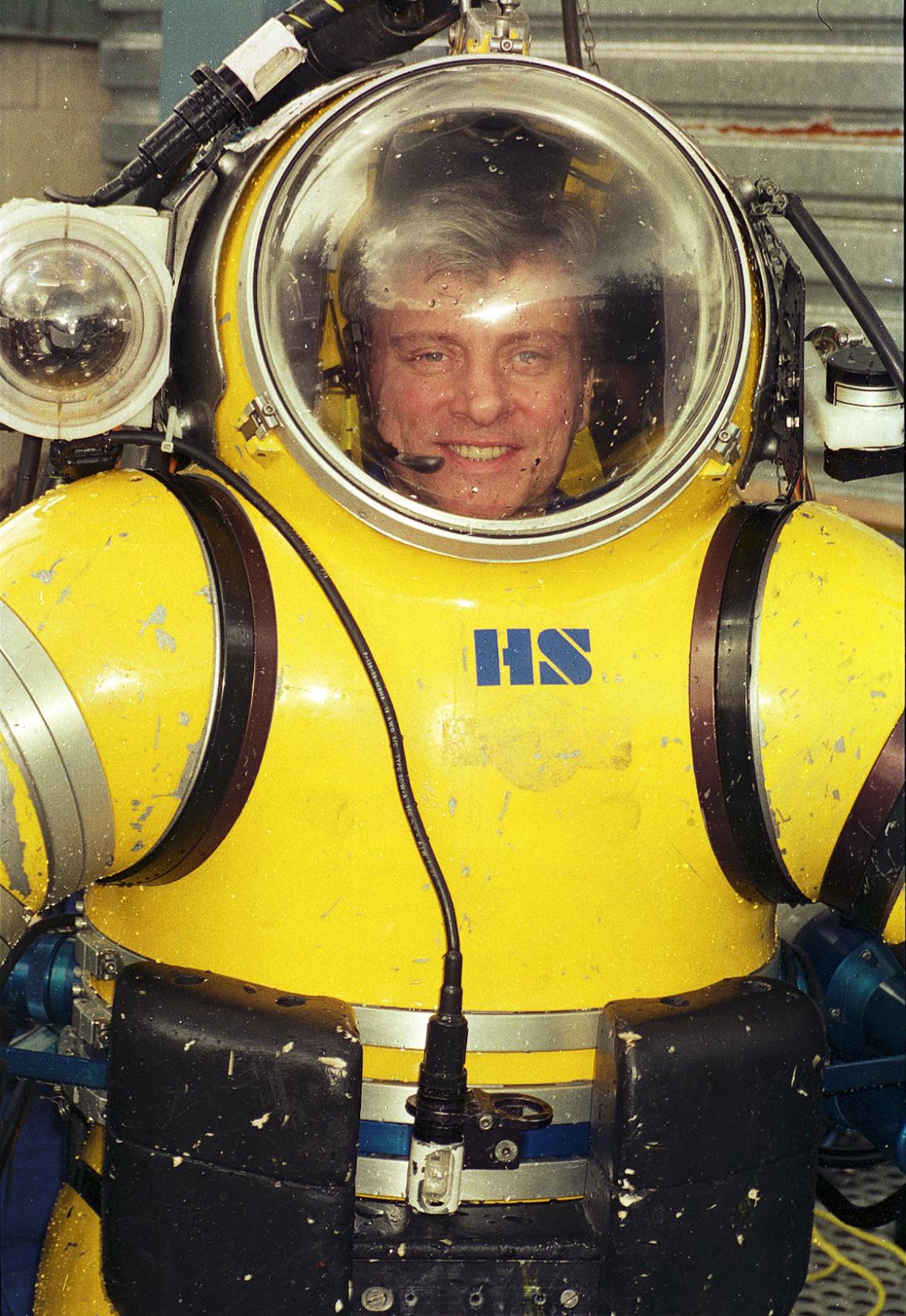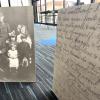
For inventor Phil Nuytten, who has designed diving suits and submersibles for the navy, NASA and Hollywood, the "impossible" is simply another challenge to overcome. He will receive an honorary degree at the June 7 morning convocation ceremony to recognize his accomplishments in opening up the ocean's depths to exploration and industry.
May 29, 2017 - 11:30am
Scientist Phil Nuytten designs undersea suits and submersibles used by the navy, NASA and Hollywood
When R.T. (Phil) Nuytten was eight years old, he lived a block away from the Vancouver Shipyard. He remembers lying on the wharf planks, looking at the sea anemones and schools of fish around the pilings, wishing he could go down there.
The young boy quickly learned to use a mask and fins, and then scuba gear. By age 16 he had opened Vancouver’s first dive shop, teaching courses and making dry suits after school. That would be the start of a lifelong pursuit to create more advanced gear so this eager explorer could stay underwater longer.
Nuytten went on to become a deep-ocean explorer, scientist, inventor, founder of Nuytco Research Ltd. and internationally recognized pioneer in the diving industry. Today, his deep-ocean undersea equipment is used around the globe by several organizations including the National Geographic Society, NASA, Hollywood and nearly a dozen navies.
Nuytten will accept an Honorary Doctor of Science at Vancouver Island University’s (VIU’s) convocation ceremony on June 7 at 10 am in recognition of his innovations that have opened the ocean’s depths to exploration and industry.
“Phil Nuytten has spent nearly 40 years developing undersea systems that have the safety of the diving technician as their common theme,” says Dr. Don Noakes, Dean of Science and Technology at VIU and lead nominator. “His goal has been to provide scientific, technical, military, and sport divers full access to continental-shelf depths without the hazards of decompression, so that humans can explore, learn about, and—ultimately—protect the world’s oceans.”
After selling the dive store, Nuytten started a small commercial diving company. He found that the limitations and dangers were almost all due to pressure, and that got his gears turning.
“I thought how great it would be to spend hours underwater, working or exploring, not be subject to long decompression, and avoid decompression sickness or ‘the bends,’” says Nuytten. “Being told ‘that is impossible’ is all I need to start the creative juices flowing.”
The “impossible” spurred his invention of the one-atmosphere Newtsuit. A nod to his last name and the aquatic salamander, the Newtsuit kept the outside water pressure out and allowed divers to descend to 1,000 feet, stay for hours and come straight back to the surface without the need for long decompression.
After the Newtsuit came the Exosuit and then DeepWorker submersible vehicles, which allow scientists and filmmakers to operate from inside an acrylic-domed pod on the ocean floor at depths of 2,000 to 3,000 feet.
The subs have been used to simulate Mars and lunar landers, and the suits are used to familiarize NASA and CSA astronauts with working in a weightless condition. Nuytten’s company also built the propulsion systems of the “bots” or remotely operated vehicles that went inside the Titanic wreck to record footage for the 1997 movie. One bot is still there.
“My ideas for new invention most often come from need: identify the problem, acquire the tools to overcome the problem, and, if they don’t exist, make them!” says Nuytten.
Contract work has taken Nuytten to shipwrecks, oilfields and marine sanctuaries around the world. With the National Geographic Society and National Oceanic Atmosphere Administration he has studied deep-ocean environmental impact on national marine sanctuaries.
A Metis and a potlatch chief in the Kwakwaka’wakw Nation, Nuytten says his cultural values have a significant impact on his love for the ocean and his work to explore and protect it.
“The First Nations people of the Northwest Coast have a strong ecological view of the ocean that feeds them. They have successfully used ocean resources for thousands of years and have proved to be admirable stewards of the Pacific Ocean,” he says. “Aqua-Lung co-inventor Jacques Cousteau put it well when he said, ‘You protect what you love.’”
Nuytten is a recipient of the Canadian Queen’s Medal and was appointed to the Order of Canada for his innovations in deep-sea exploration that have improved safety and made Canada a leader in underwater development and commerce.
To learn more about VIU’s convocation ceremonies, click here.
-30-
Media Contact
Jenn McGarrigle, Communications Officer, Vancouver Island University
P: 250.740.6559 | C: 250.619.6860 | E: jenn.mcgarrigle@viu.ca | T: @VIUNews
Tags: Announcements






